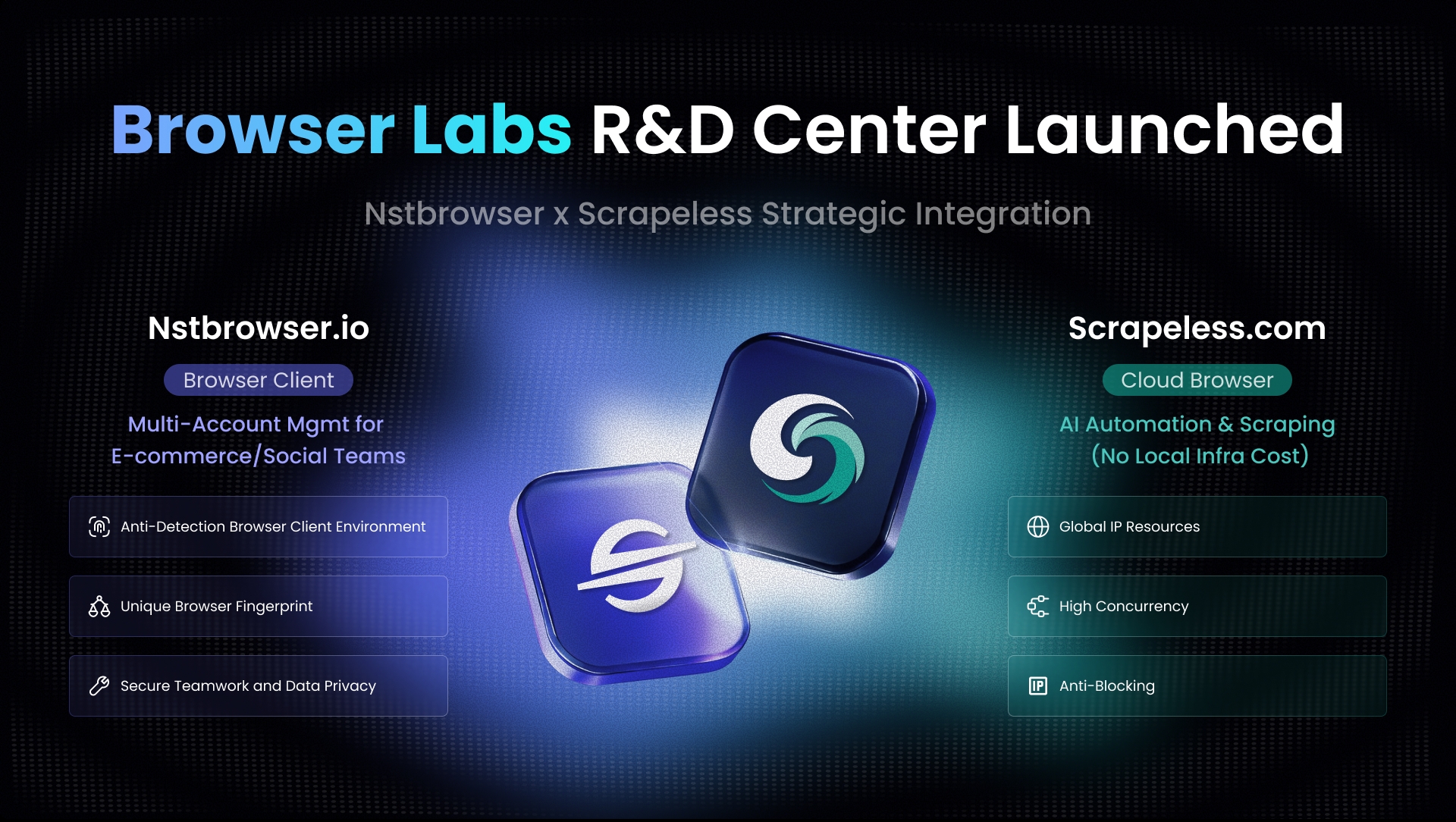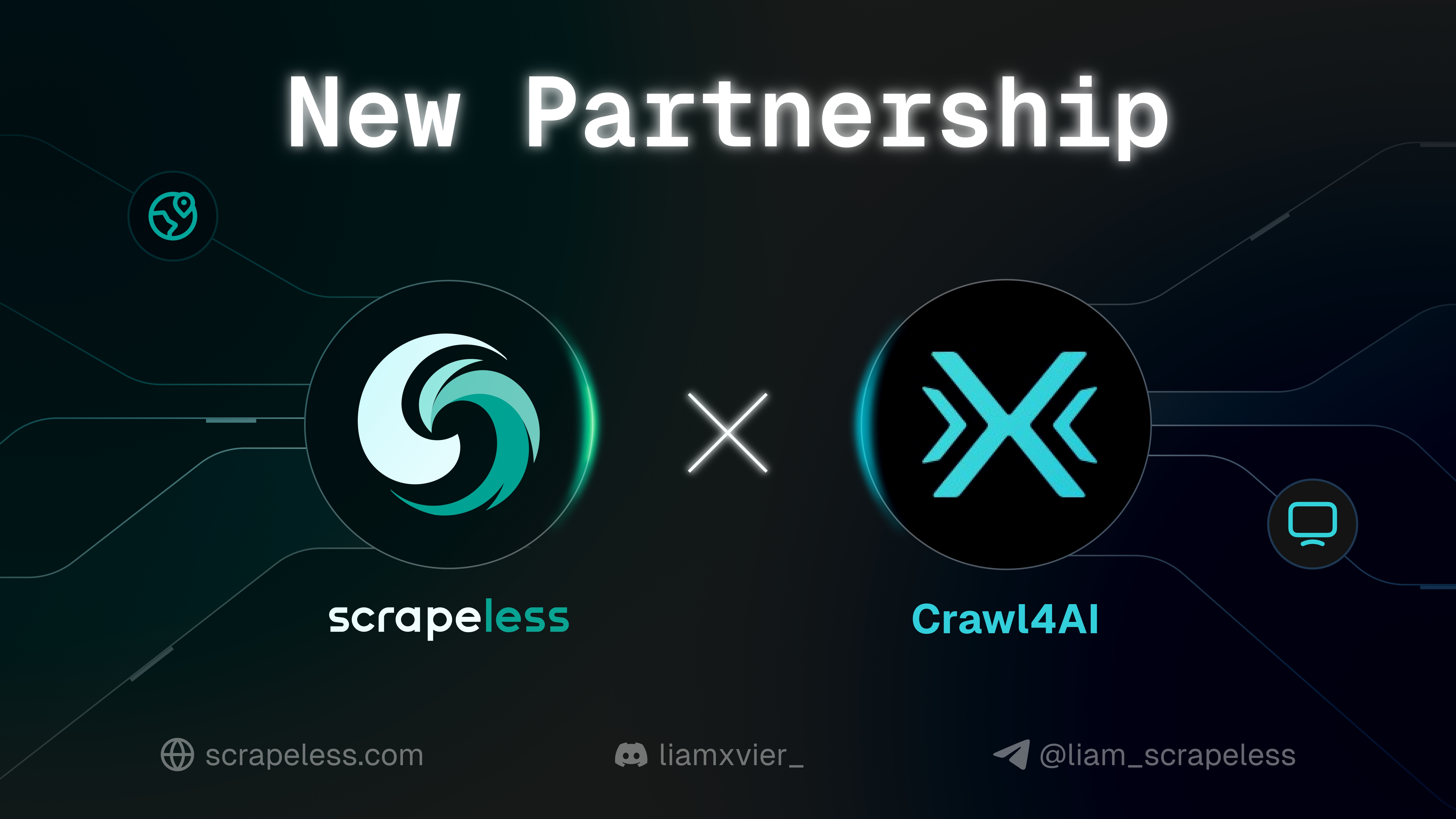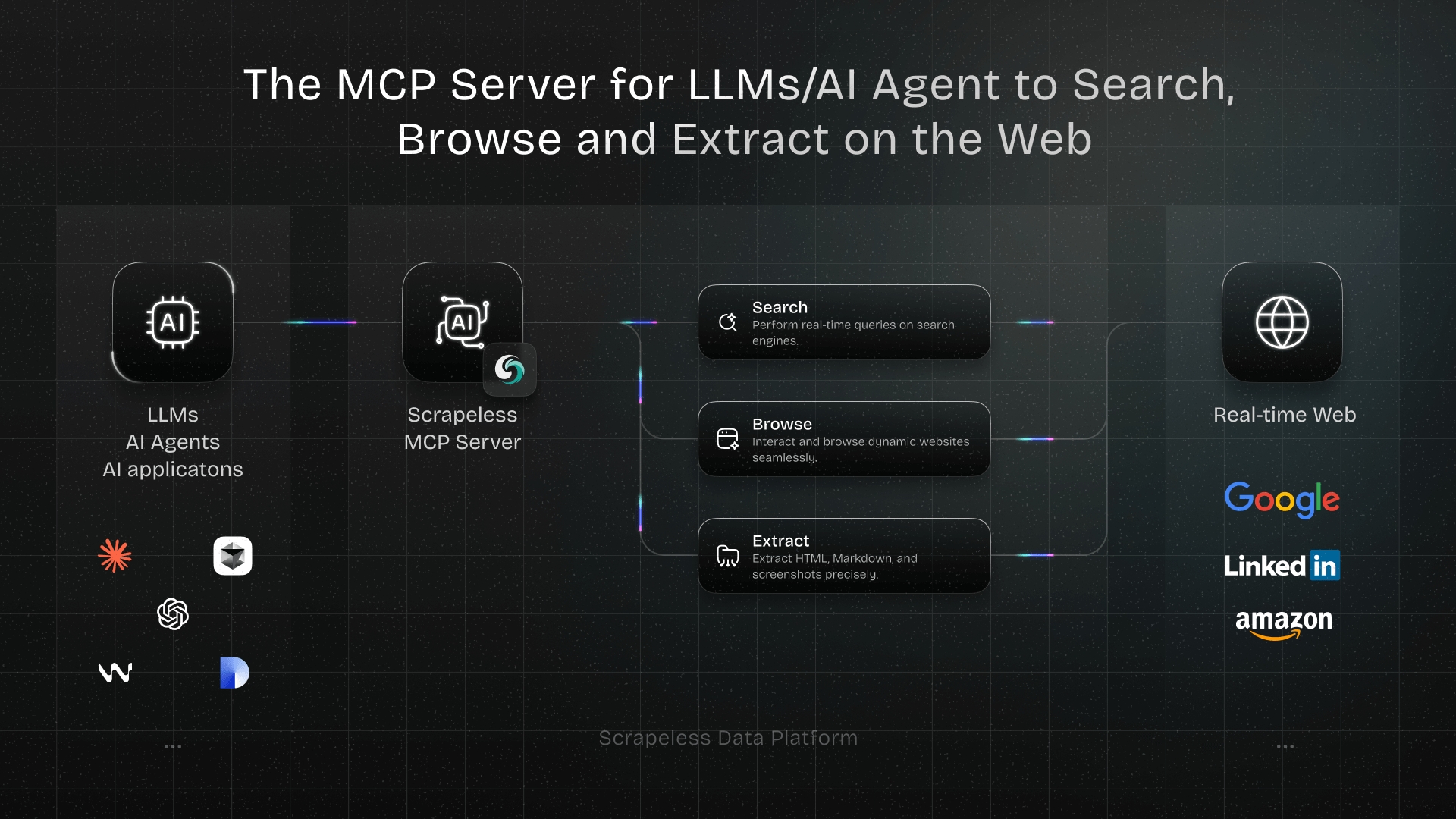How to Bypass CAPTCHAs in C# in 2025: 5 Approaches
Expert Network Defense Engineer
Key Takeaways:
- CAPTCHAs are designed to differentiate humans from bots, but various techniques exist to bypass them in C#.
- Approaches range from stealth browser automation to leveraging AI and specialized CAPTCHA solving services.
- Integrating with premium CAPTCHA solvers or using scraping browsers can significantly improve success rates.
- Web unlocking APIs offer a comprehensive solution for handling CAPTCHAs and other anti-bot measures.
- Ethical considerations and legal compliance are crucial when implementing CAPTCHA bypass strategies.
Introduction
CAPTCHAs (Completely Automated Public Turing test to tell Computers and Humans Apart) are ubiquitous on the internet, serving as a primary defense against automated bots. While essential for security, they pose significant challenges for legitimate automation tasks like web scraping, data collection, and automated testing. This guide explores five effective approaches to bypass or solve CAPTCHAs using C# in 2025, providing developers with the knowledge and tools to navigate these hurdles. We will delve into each method, offering practical insights and code examples to help you implement robust solutions. Understanding these techniques is vital for maintaining efficient and reliable automated processes in an increasingly protected online environment.
5 Approaches to Bypass CAPTCHAs in C#
Bypassing CAPTCHAs in C# requires a strategic approach, often combining stealth techniques with specialized tools. Here are five effective methods to consider:
Approach 1: Tweak Your Browser Automation Tool for Stealth
Many CAPTCHAs are triggered by bot detection systems that identify anomalies in browser behavior. By configuring your browser automation tool (like Selenium or Playwright) to mimic human-like interactions and hide its automated nature, you can significantly reduce the frequency of CAPTCHA challenges. This method focuses on prevention rather than direct solving.
How it Works: Browser automation tools often leave digital footprints. Modifying browser properties, JavaScript variables, and HTTP headers makes your automated browser appear more like a regular user's. While dedicated stealth libraries are common in Python and JavaScript, C# requires manual configuration.
C# Code Example (Selenium - Snippet):
csharp
ChromeOptions options = new ChromeOptions();
options.AddArgument("--disable-blink-features=AutomationControlled");
options.AddExcludedArgument("enable-automation");
// ... more stealth options
IWebDriver driver = new ChromeDriver(options);
driver.Navigate().GoToUrl("https://bot.sannysoft.com/");Pros: Cost-effective, proactive in avoiding CAPTCHAs, integrates with existing automation.
Cons: Requires continuous maintenance, complex to implement, limited against advanced CAPTCHAs.
Approach 2: Pass the CAPTCHA to AI
Artificial Intelligence, particularly machine learning models, can solve various CAPTCHAs. This approach involves capturing the CAPTCHA, sending it to an AI service for recognition, and then using the AI's solution to complete the challenge.
How it Works: Your C# script captures the CAPTCHA image, sends it to an AI-powered service, receives the solution (e.g., text, coordinates), and then inputs this solution into the CAPTCHA field. While effective for simpler, text-based CAPTCHAs, modern CAPTCHAs are designed to be more resistant to AI.
C# Code Example (Conceptual with AI API - Snippet):
csharp
// Capture screenshot
// Send to AI API (e.g., via HttpClient with image data)
// Receive solution from AI
// Input solution into CAPTCHA field using Selenium/PlaywrightPros: Automates solving, versatile for some CAPTCHA types, scalable with cloud AI.
Cons: Costly, accuracy issues with complex CAPTCHAs, adds latency, less reliable for advanced CAPTCHAs [1].
Approach 3: Integrate With a Premium CAPTCHA Solver Provider
Premium CAPTCHA solver services specialize in bypassing various CAPTCHA types (reCAPTCHA, hCaptcha, etc.) by combining advanced automation, AI, and human workers. They offer APIs for seamless integration into C# applications.
How it Works: Your C# application detects a CAPTCHA, sends its data (site key, image, URL) to the solver service via API. The service processes it and returns a solution token or answer, which your application then injects into the webpage.
C# Code Example (2Captcha Integration - Snippet):
csharp
TwoCaptcha solver = new TwoCaptcha("YOUR_2CAPTCHA_API_KEY");
ReCaptcha captcha = new ReCaptcha();
captcha.SetSiteKey("YOUR_RECAPTCHA_SITE_KEY");
captcha.SetUrl("https://www.google.com/recaptcha/api2/demo");
await solver.Solve(captcha);
string solutionToken = captcha.Code;
// Use Selenium/Playwright to inject solutionTokenPros: High success rate, wide CAPTCHA support, scalable, easy API integration.
Cons: Paid service, external dependency, slight latency.
Approach 4: Use a Scraping Browser
A scraping browser is a specialized, cloud-based browser environment optimized for web scraping. It comes pre-configured to bypass anti-bot measures, including CAPTCHAs, IP blocking, and browser fingerprinting.
How it Works: Your C# application connects to a remote scraping browser via an API. This remote browser handles navigation, rendering, and interaction. If a CAPTCHA is encountered, the scraping browser's built-in capabilities (AI, human solvers, stealth) automatically resolve it before returning the page content.
C# Code Example (Conceptual with Scraping Browser API - Snippet):
csharp
// Send target URL to scraping browser API
// API handles CAPTCHA, anti-bot, and returns unlocked HTML
// Process the returned HTML contentPros: Comprehensive bypass, simplified development, high reliability, scalable.
Cons: Premium paid service, external dependency, less granular control.
Approach 5: Use a Web Unlocking API
A Web Unlocking API is the most advanced and comprehensive solution for bypassing CAPTCHAs and other anti-bot protections. It aims to deliver raw, unlocked HTML content of any webpage, handling all complexities: CAPTCHAs, IP rotation, JavaScript rendering, geo-targeting, and more.
How it Works: Your C# application sends a request to the Web Unlocking API with the target URL. The API intelligently navigates the page, employing sophisticated techniques to bypass challenges. It uses a vast proxy pool, advanced browser fingerprinting, and dynamic JavaScript rendering to mimic a real user, returning the fully rendered and unlocked HTML content.
C# Code Example (Conceptual with Web Unlocking API - Snippet):
csharp
// Send target URL to web unlocking API
// API handles all anti-bot measures and returns unlocked HTML
// Process the returned HTML contentPros: Highest success rate, zero management, simplicity, scalability, focus on data.
Cons: Generally the most expensive, full reliance on third-party service.
Comparison Summary: CAPTCHA Bypass Approaches in C#
| Approach | Complexity (C# Dev) | Cost | Success Rate (General) | Dynamic Content Handling | Anti-Bot Bypass | Best For |
|---|---|---|---|---|---|---|
| 1. Stealth Browser Automation | Medium | Low (Free) | Low to Medium | Good | Medium | Avoiding simple CAPTCHAs, basic automation |
| 2. Pass to AI | Medium | Medium | Low to Medium | N/A (image processing) | Low | Simple text/image CAPTCHAs, niche cases |
| 3. Premium CAPTCHA Solver Provider | Low | Medium to High | High | N/A (API-based) | Medium | Solving diverse CAPTCHAs, high volume |
| 4. Scraping Browser | Low | High | Very High | Excellent | High | Complex sites, managed infrastructure |
| 5. Web Unlocking API | Low | Very High | Excellent | Excellent | Very High | Large-scale, highly protected sites, full automation |
Why Scrapeless is Your Best Alternative
While various methods exist for bypassing CAPTCHAs in C#, the landscape of anti-bot technologies is constantly evolving, making it challenging to maintain effective solutions. This is where a comprehensive service like Scrapeless shines as a superior alternative, offering a robust and hassle-free approach to data extraction from even the most protected websites.
Scrapeless operates as a powerful Web Unlocking API, designed to abstract away the complexities of CAPTCHA solving, IP rotation, browser fingerprinting, and dynamic content rendering. It provides a single, reliable endpoint that delivers the clean HTML content of any target page, regardless of the anti-bot measures in place. This means you can focus on utilizing the data rather than battling CAPTCHAs and other web protections.
How Scrapeless Simplifies CAPTCHA Bypass:
- Automated CAPTCHA Resolution: Scrapeless integrates advanced AI and machine learning models, alongside human-powered solving where necessary, to automatically detect and resolve all major CAPTCHA types (reCAPTCHA v2/v3, hCaptcha, Arkose Labs, etc.). You don't need to implement separate CAPTCHA solver APIs or manage their integration.
- Intelligent Anti-Bot Evasion: Beyond CAPTCHAs, Scrapeless employs a sophisticated suite of anti-bot evasion techniques. This includes a vast pool of residential and data center proxies for IP rotation, realistic browser fingerprinting, and dynamic JavaScript rendering. These measures ensure your requests appear legitimate, significantly reducing the chances of encountering CAPTCHAs or being blocked.
- Simplified C# Integration: With Scrapeless, your C# code remains clean and focused. Instead of complex Selenium or Playwright setups with stealth options, or intricate integrations with multiple CAPTCHA solver APIs, you make a simple API call to Scrapeless. It handles all the underlying challenges, returning the desired webpage content directly.
- Scalability and Reliability: Designed for enterprise-grade data extraction, Scrapeless offers unparalleled scalability. Whether you need to scrape a few pages or millions, its cloud-based infrastructure scales automatically to meet your demands, ensuring consistent performance and high uptime. This eliminates the need for you to manage server resources or proxy networks.
- Cost-Effectiveness: While a premium service, Scrapeless often proves more cost-effective in the long run than building and maintaining custom CAPTCHA bypass solutions. The time and resources saved on development, debugging, and infrastructure management far outweigh the service cost, allowing your team to focus on higher-value tasks.
By choosing Scrapeless, you're not just bypassing CAPTCHAs; you're adopting a future-proof solution that adapts to evolving web protections, ensuring uninterrupted access to the data you need. It transforms the daunting task of web scraping from a technical battle into a streamlined, efficient process.
Conclusion and Call to Action
Bypassing CAPTCHAs in C# is a critical skill for anyone involved in web automation, from data extraction to automated testing. As CAPTCHA technologies become more sophisticated, so too must our approaches to circumvent them. We've explored five distinct methods, ranging from stealth browser configurations to advanced Web Unlocking APIs, each with its own set of advantages and considerations.
While manual tweaks and AI-based solutions offer some utility, the most reliable and scalable methods often involve leveraging specialized services. These services abstract away the complexities of anti-bot measures, allowing developers to focus on their core objectives.
For those seeking the most robust, efficient, and future-proof solution, Scrapeless stands out as the definitive choice. Its comprehensive Web Unlocking API handles all aspects of CAPTCHA resolution and anti-bot evasion, ensuring seamless access to web data without the constant battle against evolving protections. By integrating Scrapeless, you empower your C# applications with unparalleled web access capabilities, transforming potential roadblocks into smooth data flows.
Ready to overcome CAPTCHA challenges with ease?
Don't let CAPTCHAs hinder your automation efforts. Experience the power and simplicity of Scrapeless. Sign up today and unlock the full potential of your C# web automation projects.
Start Your Free Trial with Scrapeless Now!
Frequently Asked Questions (FAQ)
Q1: Is bypassing CAPTCHAs legal?
The legality of bypassing CAPTCHAs is a complex issue. It largely depends on the website's terms of service, the type of data being accessed, and the jurisdiction. While bypassing CAPTCHAs for personal use or ethical security research might be permissible, doing so for commercial web scraping or to violate terms of service can lead to legal repercussions. Always review the target website's policies and consult legal advice if unsure.
Q2: What is the most effective method for bypassing reCAPTCHA v3?
reCAPTCHA v3 operates silently in the background, scoring user interactions without presenting a challenge. Bypassing it effectively often involves mimicking human-like behavior, using high-quality residential proxies, and maintaining consistent browser fingerprints. Web Unlocking APIs and advanced scraping browsers are generally the most effective solutions as they handle these complexities automatically, often by integrating with services that can obtain valid reCAPTCHA tokens.
Q3: Can I bypass CAPTCHAs for free?
Basic CAPTCHAs (like simple image recognition or text-based ones) can sometimes be bypassed for free using open-source AI models or by carefully configuring browser automation tools for stealth. However, for more advanced CAPTCHAs (reCAPTCHA, hCaptcha) and for large-scale, reliable operations, free methods are often insufficient and unreliable. Premium services offer a more consistent and scalable solution, though at a cost.
Q4: How do websites detect and block scrapers?
Websites use various techniques, including analyzing IP addresses (rate limiting, blacklisting), user-agent strings, browser fingerprints (e.g., Canvas, WebGL), JavaScript execution patterns, mouse movements, and the presence of automation tools (like Selenium WebDriver flags). CAPTCHAs are one of the most common responses to detected bot activity. Advanced anti-bot systems can combine these signals to build a comprehensive profile of a user and identify automated access.
Q5: What are the risks of aggressive CAPTCHA bypassing?
Aggressive or unethical CAPTCHA bypassing can lead to several risks: permanent IP bans, legal action from website owners (e.g., for violating terms of service or copyright), reputational damage, and the need for continuous maintenance as anti-bot systems evolve. It can also result in unreliable data if the bypass methods are frequently detected and blocked. Prioritizing ethical practices and using legitimate services is crucial for sustainable automation.
References
[1] Nature: AI-based CAPTCHA solving: a systematic review
[2] 2Captcha: Online Captcha Recognition And Anti Captcha Service
[3] ZenRows: Web Scraping API
[4] Bright Data: Web Data Platform
At Scrapeless, we only access publicly available data while strictly complying with applicable laws, regulations, and website privacy policies. The content in this blog is for demonstration purposes only and does not involve any illegal or infringing activities. We make no guarantees and disclaim all liability for the use of information from this blog or third-party links. Before engaging in any scraping activities, consult your legal advisor and review the target website's terms of service or obtain the necessary permissions.



